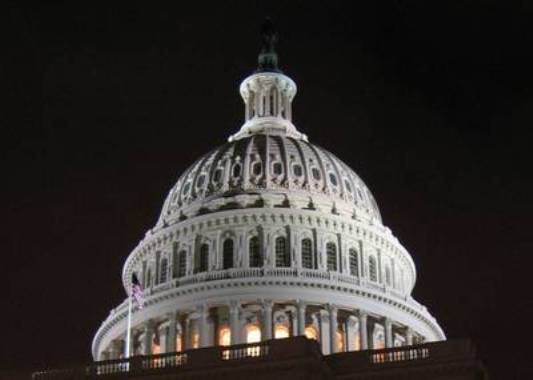Last-ditch efforts in the Senate to reach an agreement to avert the so-called fiscal cliff appeared to reach an impasse on Sunday as senators were sent home for the evening.
Just before 6 p.m. in Washington, Senate Majority Leader Harry Reid, D-Nev., said that the Senate would recess until 11 a.m. on Monday. Weekend talks aimed at preventing the approximately $600 billion in tax increases and spending cuts so far have not produced a proposal that can gain bipartisan support.
Senate Democrats and Republicans met in party caucuses from 3 p.m. until about 6 p.m. No lawmaker emerging from those meetings gave a definitive account of the latest offer from Republicans or any kind of counteroffer from Democrats. Neither Mr. Reid nor Senate Minority Leader Mitch McConnell, R-Ky., provided an assessment of the talks before the Senate went into recess.
In a speech on the Senate floor in the middle of the afternoon, Mr. McConnell said that the GOP had submitted an offer last night around 7 p.m. and hadn't yet received a response from Democrats as of 2 p.m.
“I'm concerned with the lack of urgency here,” Mr. McConnell said. “There's far too much at stake for political gamesmanship. In order to get things moving, I have just spoken with Sen. Reid. I also placed a call to the vice president to see if he could help jump start the negotiations on their side.”
Just after Mr. McConnell spoke, Mr. Reid made a statement on the Senate floor, saying that the Democrats were not in a position at that time to make a counter offer. One possible sticking point is a provision that would change the way inflation is calculated for entitlement benefits.
“I'm not overly optimistic, but I'm cautiously optimistic we can get something,” Mr. Reid said.
He told his colleagues to standby for the rest of the day – and perhaps into the evening – for potential votes on a package that would address the approximately $600 billion in tax increases and spending cuts set to go into effect on Jan. 1.
“Everybody should hang loose,” Mr. Reid said. “Something may break and we may be able to get something done.”
Earlier in the day, President Barack Obama added to the political tension by saying in an
interview on NBC's “Meet the Press” that Republicans' “only priority is that tax breaks for the wealthiest Americans are protected.”
That rhetoric drew a sharp response from House Speaker John Boehner, R-Ohio.
“Americans elected President Obama to lead, not cast blame,” Mr. Boehner said in a statement. “The president's comments today are ironic, as a recurring theme of our negotiations was his unwillingness to agree to anything that would require him to stand up to his own party. Needed cuts and reforms that the president agreed to just last year were no longer on the table, as he cited an inability to sell them to Democrats.”
The House came back into session on Sunday and is awaiting a fiscal-cliff bill from the Senate.
If an agreement is reached, final votes may not occur until late on Monday.







